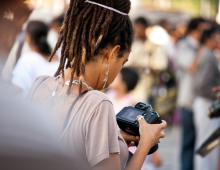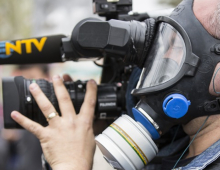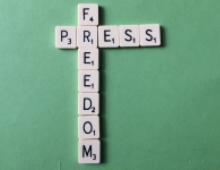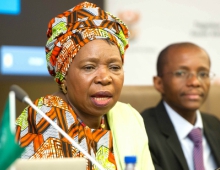When we train journalists we give them the tools to understand this ‘axis of human striving’ and to understand their role in the creation of an ‘ethical society’.
Each month The Journalist will feature Mini Master Classes and articles in The Craft section. These online tutorials and opinion pieces are based on the experiences of renowned Journalists.
If you have ideas for topics you would like to see in The Craft section or need help with an area of Journalism, let us know. The Journalist has a team whose combined experiences cover digital media, print, broadcast and filmmaking. But ultimately we are seasoned Storytellers who would like to ensure that the next generation of media men and women do the South African story justice. Anything less is a human rights violation.





























